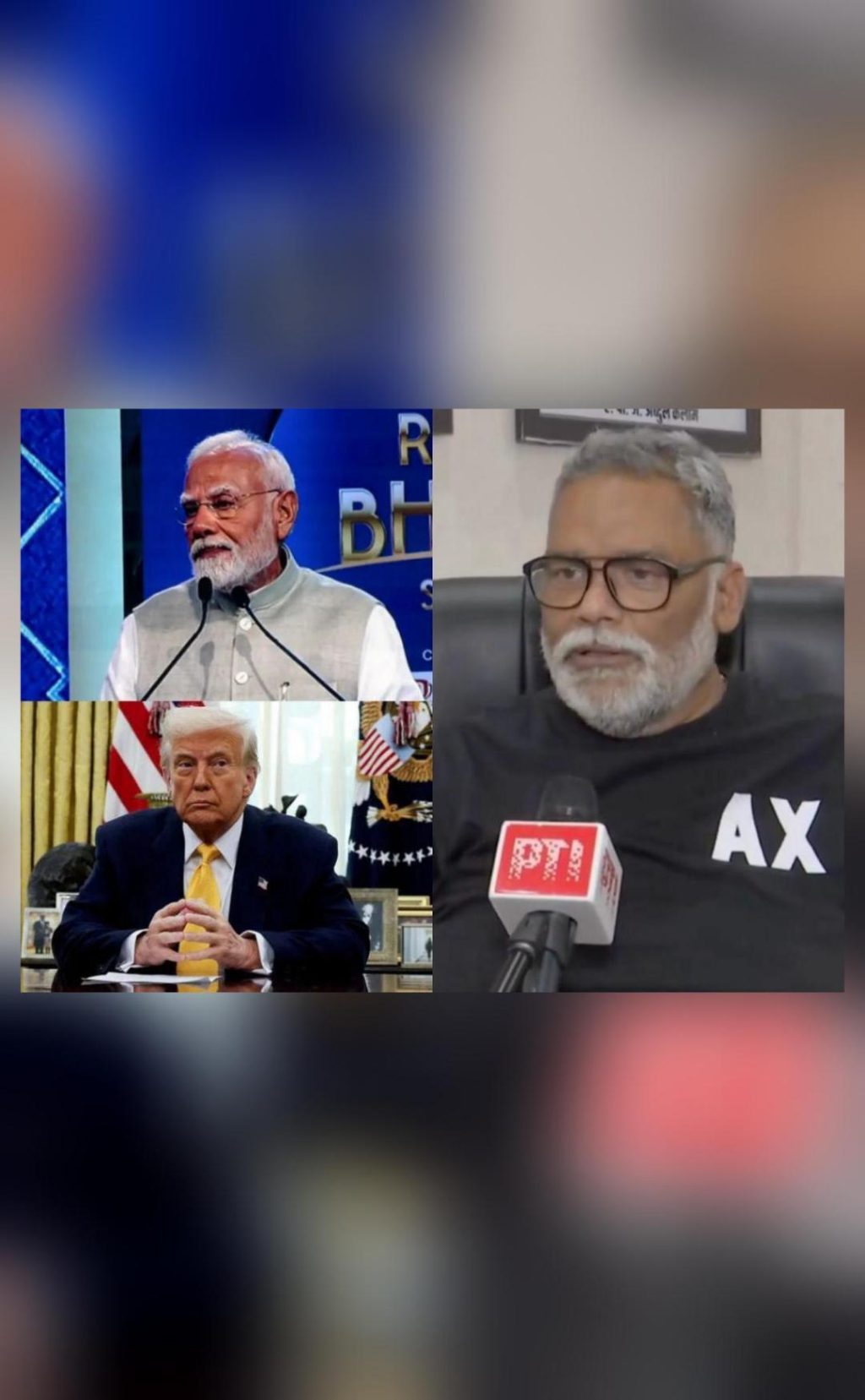
Title: PM Modi Calls Trump His Friend & He Insults India: MP Pappu Yadav
In a recent development, Purnia MP and Independent candidate Pappu Yadav has raised a storm by questioning Prime Minister Narendra Modi’s friendship with US President Donald Trump. This comes after Trump claimed that he brokered a ceasefire between India and Pakistan, a statement that has drawn widespread criticism from various quarters.
Pappu Yadav, known for his forthrightness, has taken a strong stance against Trump’s claims, saying that the US President is insulting India repeatedly despite PM Modi referring to him as a friend. “PM Narendra Modi himself calls Trump a friend, and he is insulting India again and again,” Yadav said in an interview.
He further added that Trump is “our enemy” and that it is perplexing why India is intimidated by the US and China. Yadav’s comments have sparked a heated debate, with many questioning the government’s stance on the issue.
Trump’s recent statement has drawn criticism from various quarters, with many pointing out that he has no credibility in brokering a ceasefire between India and Pakistan. The US President has been known for his erratic behavior and tendency to make outlandish claims, which has led to widespread skepticism about his ability to negotiate a peaceful resolution to the Indo-Pak conflict.
The Indian government has maintained a diplomatic stance on the issue, with officials refusing to comment on Trump’s claims. However, Pappu Yadav’s comments have added fuel to the fire, with many calling for a re-evaluation of India’s relationship with the US.
Yadav’s criticism of Trump is not new, as he has been a vocal critic of the US President’s policies in the past. He has previously called out Trump for his anti-Muslim rhetoric and his handling of the COVID-19 pandemic.
Pappu Yadav’s comments have also raised questions about the government’s handling of the Indo-Pak conflict. Many have criticized the government for its lack of transparency and its failure to take decisive action to resolve the conflict.
The Indo-Pak conflict is a complex issue, with both countries having a long history of tension and conflict. The conflict has its roots in the partition of India and Pakistan in 1947, when the two countries were created as a result of British colonial rule.
Since then, the two countries have had several major conflicts, including the Indo-Pakistani War of 1965, the Indo-Pakistani War of 1971, and the Kargil War in 1999. The conflict has also seen several incidents of cross-border terrorism, including the 2008 Mumbai attacks and the 2019 Pulwama attack.
In recent years, the conflict has escalated, with both countries engaged in a war of words and propaganda. The situation has been further complicated by the involvement of external powers, including the US and China.
The US has a long history of involvement in the region, dating back to the Cold War era. The US has provided military aid to both India and Pakistan, and has also been involved in several joint military exercises with the two countries.
China, on the other hand, has been increasing its influence in the region in recent years. China has been investing heavily in infrastructure projects in Pakistan, including the China-Pakistan Economic Corridor (CPEC), which has been seen as a game-changer for the region.
India has been wary of China’s growing influence in the region, and has been trying to balance its relations with the US and China. However, Pappu Yadav’s comments have raised questions about the government’s ability to strike a balance between its relations with the two countries.
In conclusion, Pappu Yadav’s comments have added a new dimension to the Indo-Pak conflict, with many questioning the government’s stance on the issue. The conflict is complex and has its roots in the partition of India and Pakistan in 1947.
The situation has been further complicated by the involvement of external powers, including the US and China. India needs to adopt a nuanced approach to the conflict, taking into account the interests of all parties involved. It is also essential for the government to be transparent and accountable in its dealings with the US and China.
News Source:






